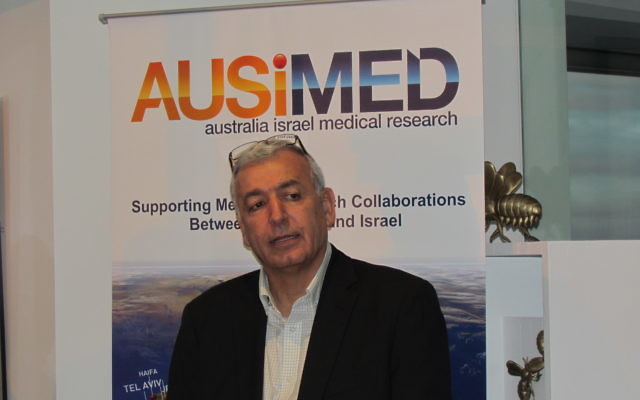Medical collaboration body launched
MEDICAL researchers have indicated strong interest in collaborative efforts between Australia and Israel on several key projects, according to a visiting Israeli health specialist.
MEDICAL researchers have indicated strong interest in collaborative efforts between Australia and Israel on several key projects, according to a visiting Israeli health specialist.
Professor Shlomo Mor-Yosef, who recently completed his tenure as director-general of the Hadassah Medical Organisation (HMO) in Jerusalem, was in Australia this week to launch AUSiMED, an organisation that will foster these joint medical projects through grants.
The Israeli visitor, who chairs Israel’s National Institute for Health Policy, met researchers and public officials to discuss future projects that span Israeli and Australian medical know-how across a number of hospitals and research centres.
Applied medical research – unlike high technology – has long, expensive development cycles, Mor-Yosef told The AJN. “In high-tech, it can take a couple of years and $1 million before you know if you’ve succeeded or failed. In medical research, it can take many years and a far greater investment.”
Mor-Yosef visited Melbourne, Sydney and Canberra, and was scheduled to meet Monash University medical researchers, federal Health Minister Tanya Plibersek and NSW Governor Marie Bashir – as well as representatives of Jewish community support groups for the Weizmann Institute, Technion and Hadassah.
“Israelis are more risk-takers than Australians,” he said, although he acknowledged that both countries have a great tradition of medical research.
AUSiMED’s executive director Ros Kaldor-Aroni told The AJN the organisation has channelled almost $1 million into projects ranging from the use of embryonic stem cells to treat multiple sclerosis, to cooperation between the Centre for Community Child Health at Melbourne’s Royal Children’s Hospital and hospitals in Israel. “AUSiMED currently has an impressive list of projects that have been approved for funding. Each of these projects is at the cutting edge of medical and scientific research,” she said.
The initiative began in 2004 when then Victorian premier Steve Bracks visited Hadassah Medical Centre in Jerusalem, one of the world’s leading centres of healing, teaching and research. The focus of his visit was to study mass-casualty trauma management: specifically how Hadassah had developed strategies for terrorism and natural mass-casualty events.
An outcome of the visit was a decision by the Victorian government to fund a bilateral collaboration between The Alfred Hospital, the state’s designated mass-casualty centre, and Hadassah. This initial collaboration became the genesis for AUSiMED.
Over the next two years, teams of specialists travelled between Israel and Australia, developing enhanced protocols for The Alfred’s mass-casualty trauma management. The new protocols were successfully implemented during the time of Victoria’s Black Saturday bushfires in February 2009.
AUSiMED seeks Israeli-Australian cooperation in fields such as stem-cell therapy and its effects on multiple sclerosis, early childhood health, therapies for trauma management in children and adolescents, containing future flu pandemics, blood-based testing for brain tumours, and monitoring the quality of stored red blood cells,
During his time at HMO, Mor-Yosef initiated a unique program for young specialists in training to have free time for research.
AUSiMED’s patrons include Bracks, Mor-Yosef, clinical researcher Professor David Cooper, molecular biologist Professor Suzanne Cory and former Victorian governor Professor David de Kretser.
PETER KOHN


comments